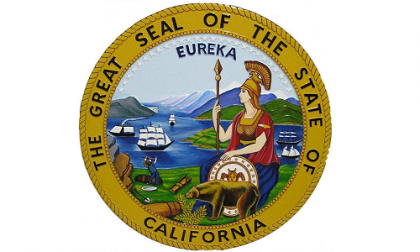CA Assemblyman Mike Gatto Offers Insight Into Poker Bill
At the beginning of this month, California Assemblyman Mike Gatto introduced Assembly Bill 9, the Internet Poker Consumer Protection Act of 2015, in an effort to regulate and legalize online poker in the Golden State. His is the latest in a long line of bills that have gone nowhere, but in an interview with Marco Valerio on OnlinePokerReport.com, Gatto said he feels there is a 50/50 chance that his bill will succeed (or, as he put it, “fail spectacularly”).
Gatto’s bill is very similar to the others that preceded it, though two aspects of it stand out as unique. The first is that initial deposits will be required to be made in person at a licensed operator’s brick-and-mortar location or at an authorized satellite service center. Additionally, withdrawals over a yet-to-be-determined amount will have to be made in person, as well.
In talking to Valerio, Gatto explained some of the reasoning behind this rule:
First of all, if you’re showing up to a casino floor, you’re going to be on camera. If you’re showing up with suitcases full of 500 Euro notes and a foreign passport, maybe you’re a money launderer. But the point here is, everybody would have to show up with two forms of identification, in person. Security teams would be trained to recognize signs of money laundering and very carefully screen minors from getting in the system.
By successfully proving their identity in the flesh, players are then “in the system,” and can feel free to make future deposits online. Gatto also added that the in-person requirement would be good for the casinos because it would get people who were 100 percent interested in playing poker into the establishments. He said the casinos would sort of be like a bank branch. “If you want to open a bank account, you have to show up in person. You could then do all your banking online, but you do have to show up in person for that initial visit, and we think this is a sensible way to do this for online gaming.”
Now, he is not exactly correct in that statement, since there are plenty of online banks that don’t even have branches and therefore don’t require in-person transactions, but his mindset on this is not totally off-base.
Of course, this all helps the large card rooms situated in highly populated areas, areas where it is easy for people to make that in-person deposit. To that point, Gatto said:
Finally you’re going to have a situation where the licensees, the main operators, would pay existing operators for their customer bases and pay their voucher to sign up their customers through the system.
There might be small establishments that cannot participate, and before they thought that the only way that they could participate in online poker was to form some sort of coalition and scrap together all their money and try to invest in a license.
But that’s proven to be probably not the way that things are going to go down. So I think this would allow those establishments to participate.
One of the other unique aspects of Assembly Bill 9 is the old “bad actor” clause. The clause in and of itself is nothing new. Past attempts at legislation had included a regulation like this that prohibits any company that accepted U.S. customers after December 31st, 2006 from  acquiring an internet gaming license. Where the bad actor clause in Gatto’s bill differs is that is also prohibits the use of “covered assets” that were used in offering gambling to U.S. customers after said date, even if those assets are no longer owned by the original operator. Thus, in this case, PokerStars is being squarely targeted as the key bad actor. Though it stayed in the U.S. market after the UIGEA, many have felt that because it was purchased by Amaya Gaming this year and that its top management has all left, the door would be open for PokerStars to return to the States. The bad actor clause plus the covered asset clause would explicitly prevent PokerStars from applying for a license (though some language does offer the potential for its eventual consideration).
acquiring an internet gaming license. Where the bad actor clause in Gatto’s bill differs is that is also prohibits the use of “covered assets” that were used in offering gambling to U.S. customers after said date, even if those assets are no longer owned by the original operator. Thus, in this case, PokerStars is being squarely targeted as the key bad actor. Though it stayed in the U.S. market after the UIGEA, many have felt that because it was purchased by Amaya Gaming this year and that its top management has all left, the door would be open for PokerStars to return to the States. The bad actor clause plus the covered asset clause would explicitly prevent PokerStars from applying for a license (though some language does offer the potential for its eventual consideration).
To this, Gatto told Valerio:
It is something we paid attention to because there is a very strongly held opinion that we want to have a level playing field. We want to make sure that groups who are authorized to participate in online poker all have the same chance, particularly those who were very careful to do everything right and who were very careful to adhere to every policy that existed before.
I would never want to create a situation where we were playing favorites for one group or one entity. This is an issue where we really want to look carefully at all the data. I think this is a key issue in the bill that will require, and generate, the most discussion.
Gatto admitted that there is still a long way to go with his bill and it will likely go through a lot of changes if it has any legs.




















COMMENTS